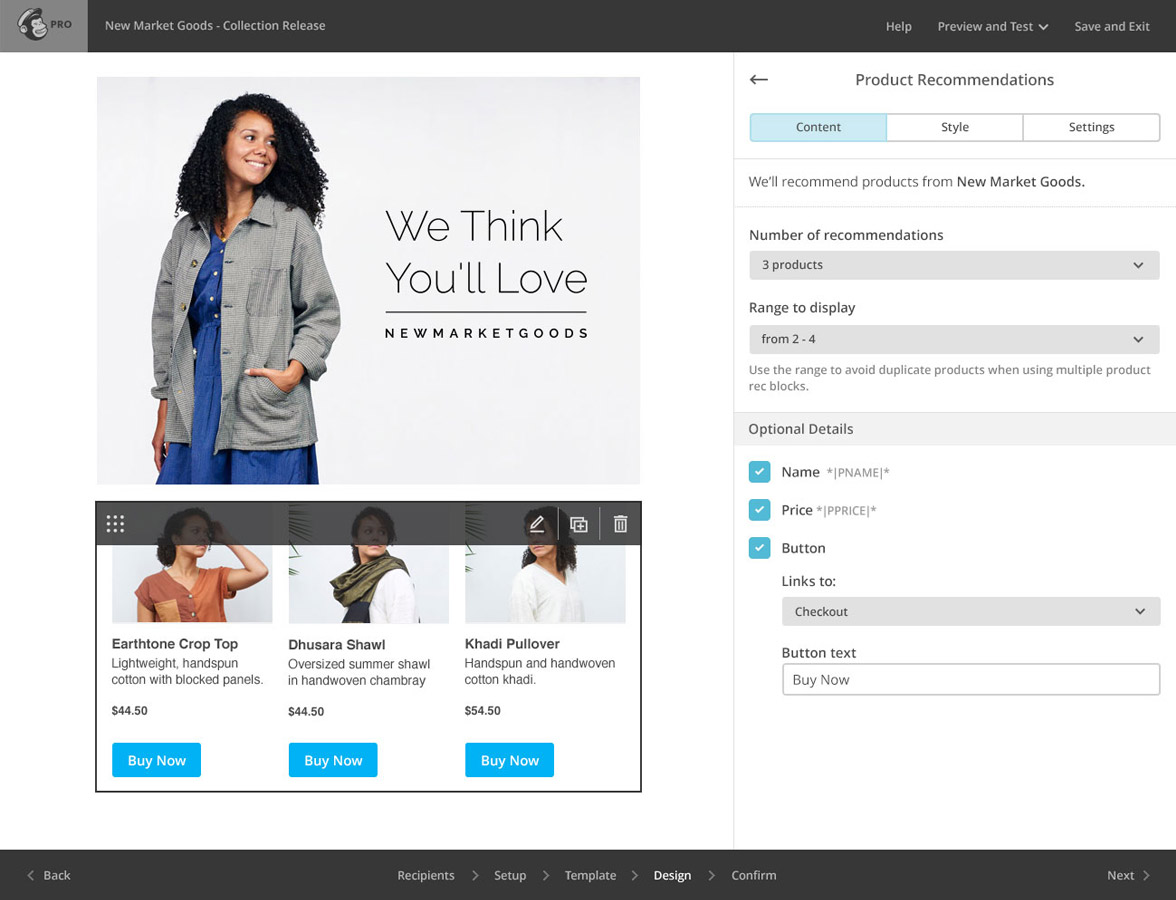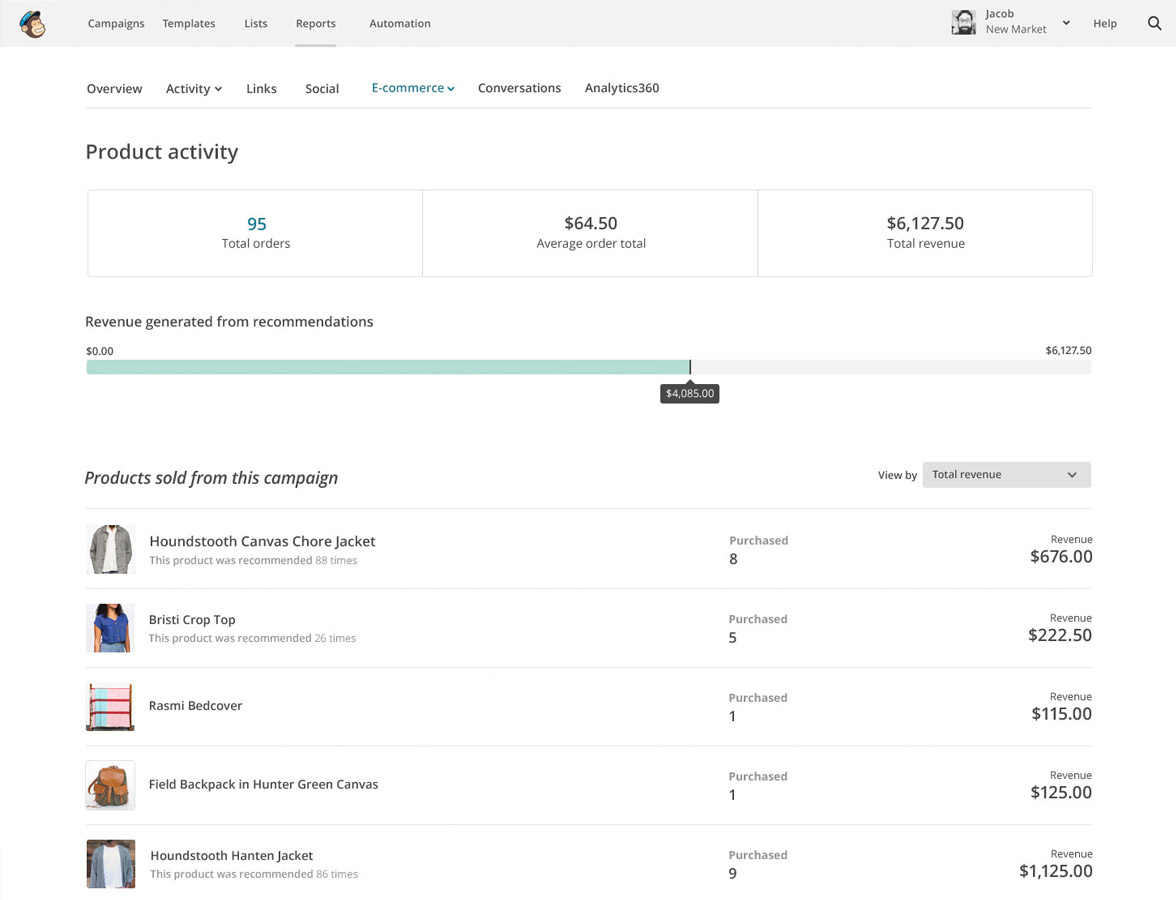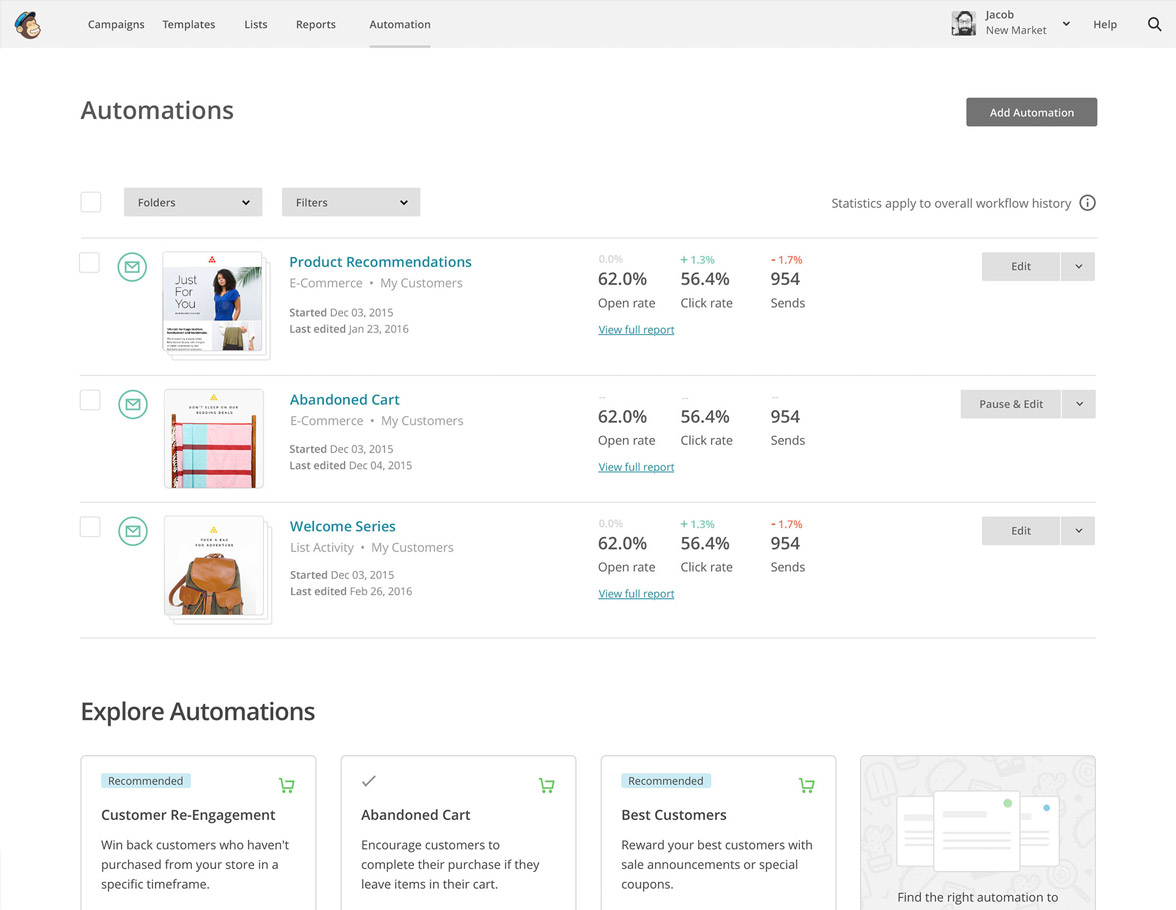
MailChimp recently introduced us to yet another of its great features – Product Recommendations. The new paid feature is available to eCommerce sites that have had over 50 unique customers and more than 500 orders in the past year as well as at least 10 products available to purchase.
The feature is built into MailChimp and is readily available for businesses of all sizes who fit the criteria although those that don’t can still send emails promoting top-selling items.
How to Use Product Recommendations
Getting started is a fairly simple process and simply requires you to combine your store with MailChimp and the feature will be instantly available from the drop-and-drag editor. Your data from previous customers and transactions will then be analysed without you having to do a thing.
All that’s left from there is to create a Product Recommendations block for your campaign and send your emails to allow people to see your items that they will hopefully want to own for themselves.
The feature does all of the work, creating personalised suggestions that can help generate more revenue.

Potential Benefits of Product Recommendations
Of course the most obvious benefit of this new and exciting feature is the prospect of selling more stock which in turn will lead to increased incomes and margins. There is much more to Product Recommendations than this though.
Firstly, it can allow your brand or store to stay fresh and relevant by delivering the kind of items that specific customers would be interested in purchasing. If they see that you have a range of impressive stock, chances of repeat business is much higher.
Similarly, if a buyer hasn’t visited your site for a while, Product Recommendations can act as a reminder of your great offerings, re-engaging them and enticing them back to your eCommerce store.
You even have the option to include the feature in cohesion with your future email campaigns and specify time factors in sending Product Recommendation emails after a customer has bought a product from your store.

How Does It Work?
It works pretty much as you’d probably expect it to by analysing a subscriber’s usage and previous purchases within your site and recommending similar or relevant products that may be of interest. It is a rather complicated process but the following will give you a clue as to how it works.
Behind the scenes, MailChimp Product Recommendation works out which products are, and which products aren’t, regularly bought by those who purchase the same items as a specific customer.
Once this has been figured out, sales data is converted into useful information, allowing insights into client buying patterns and provides a basis for the products to be selected for sending. Products that have already been purchased or are out of stock will not be included and those who haven’t bought anything will simply receive your best selling items.
Does It Work?
The answer to that question will undoubtedly be worked out when you test it. MailChimp have gone on record to say that it does so you can be fairly certain that you will gain from Product Recommendations.
They’ve been testing it using data from millions of customers and products and found that predicting future purchases is possible over 98% of the time. That’s all without having to do too much work yourself.
Working for You
You might want to get started with this feature straight away. As far as features go, it is probably one of the best out there and what’s more, it puts in most of the effort for you.
If nothing else, it is most certainly worth giving it a try if you meet the criteria required just to try it out.
Author Biography
Tieece
As an SEO Executive at Kumo since 2015, Tieece oversees the planning and implementation of digital marketing campaigns for a number of clients in varying industries.
When he's not crawling sites or checking Analytics data, you'll often find him (badly) singing along to music that nobody else in the office is in to.
Tieece holds a number of digital marketing accreditations including Google Partners qualifications.